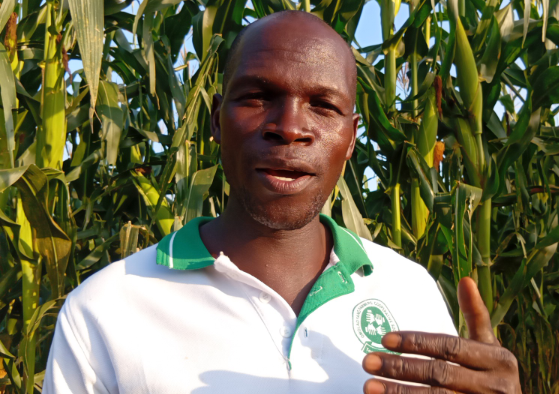
 Voice of Lango
Voice of Lango

 Voice of Lango
Voice of Lango
21 November 2025, 12:09 pm

By Ongora Denish and Odota Adubango Mourine
Farmers in Lango are boosting crop yields and enhancing climate resilience through a range of soil conservation practices.
In Barwot Village, Orit Parish, Agweng Subcounty, Lira District, a group of 40 farmers under the Lonyo Dag Nyeko Farmers’ Group have embraced soil conservation with support from International Union for Conservation of Nature (IUCN) Farm Radio International.
Adong Santa, a member of the group, said they practice mulching, bush fallowing, and organic manure application to improve soil fertility and protect the land from climate-related degradation.

Through these practices, Adong’s reports that her maize yield increased from half a sack to three sacks on a very small piece of land.
Pellegrini Benson Obua, the group secretary, said they also practice contour cropping, plant cover crops to conserve soil moisture and reduce erosion, as well as application of mulch—techniques that enhance resilience to irregular rainfall.
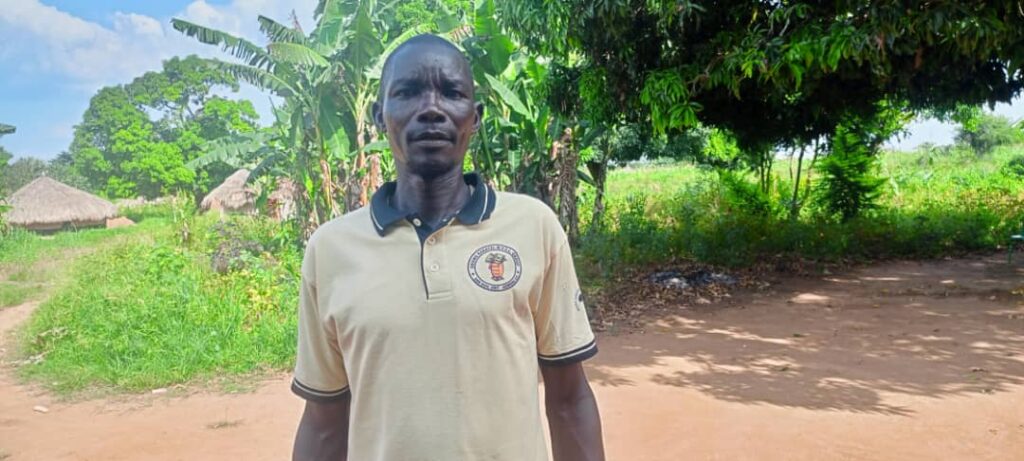
Obua said his yields have risen from eight to 20 sacks per acre, helping him pay school fees and support his household.
Across Lango, farmers trained by Agrisol Africa Limited, a youth-led agro-business enterprise in Lira City, are reporting significant yield increases through the use of an organic fertilizer called Bokashi.
Bokashi is produced from molasses, maize and rice husks, and charcoal granules.
The materials are piled and turned for about 15 days until they decompose into organic manure.
A handful of Bokashi is then applied into a 75×30 millimeter hole where maize seeds are planted—an approach that restores depleted soils while improving water-holding capacity.
Geoffrey Opido, an agronomist at Agrisol Africa Ltd, said 56 farmers across Lango—specifically in Bar and Amac Sub County in Lira District, Bala Subcounty in Kole, and Acaba, Aleka, and Aber in Oyam districts—have been trained to produce Bokashi as part of climate-smart soil fertility management.
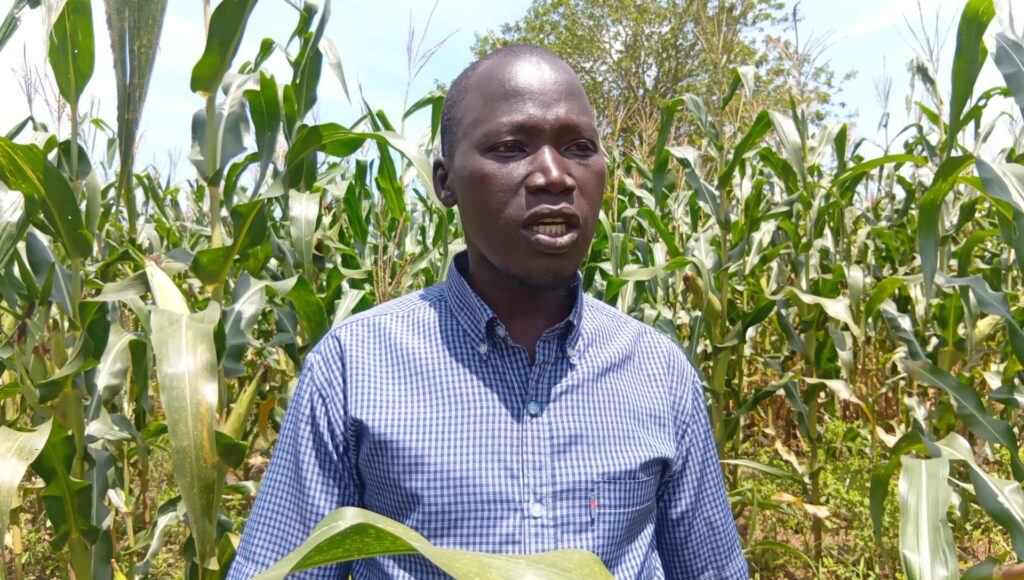
Denis Ogwal, a resident of Adyaka-Banya, Banya Ward, Amac Town Council, who was trained by Agrisol Africa Ltd, said that since adopting organic fertilizers, his yields have risen to 12 sacks per acre—a change he attributes to improved soil fertility.
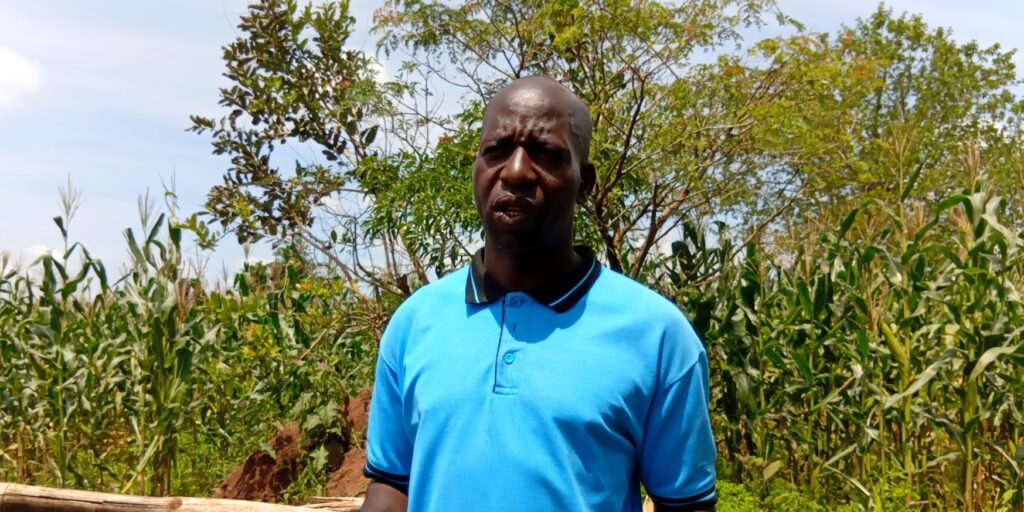
Otia Denis, another farmer in Acaba Subcounty, Oyam District, said he used to harvest fewer than 10 sacks of maize per acre, earning between shs500,000 and one million.
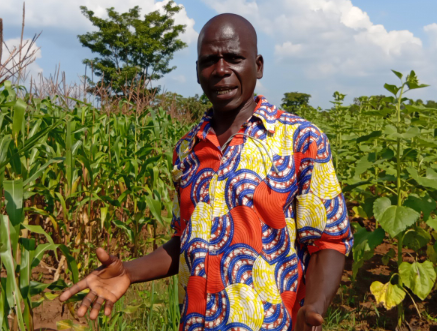
With Bokashi improving soil structure and moisture retention, Otia now expects about 20 sacks from his garden.
Denis Elim, the secretary for production of Omoladyang Dani Cereal Farmers’ Cooperative Ltd in Bala Subcounty, Kole District, said he applied Bokashi to Tembo maize seeds and harvested nine sacks—up from two sacks previously.
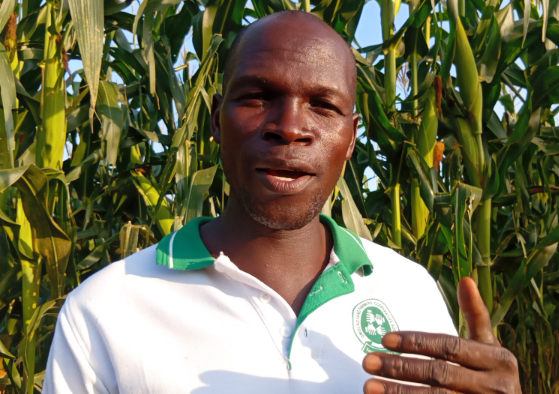
Some farmers reported spending between shs40,000 and shs120,000 to produce enough Bokashi for one acre—an affordable and environmentally friendly alternative to chemical fertilizers, whose prices have risen due to global economic and climate-related disruptions.
Lawrence Ogwal, a soil fertility technician at Ngetta Zonal Agricultural Research and Development Institute, said some farmers are now embracing soil testing, with at least 10 carrying out tests during the second rainy season this year.
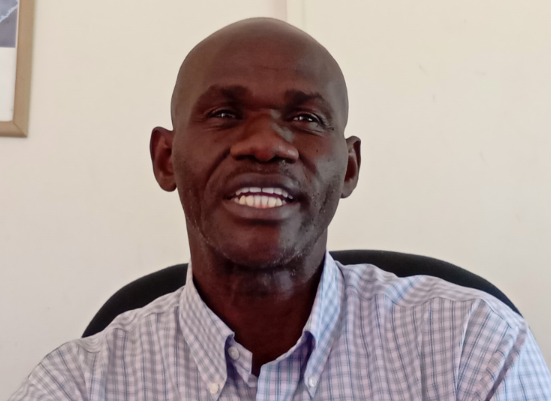
He noted that each soil sample costs shs40,000—a fee that remains a challenge for many smallholder farmers.
Ogwal added that they have been training communities near the Aswa catchment, such as Aromo in Lira District and Awere in Pader District, on soil conservation to address land degradation and climate variability.
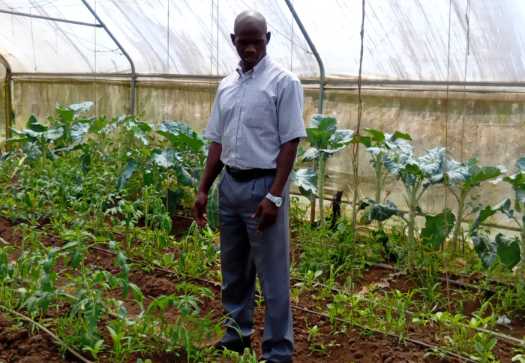
Lira District Principal Agricultural Officer, Alum Dorcus, said some farmers are also testing soil at the district agricultural office.
She noted that the district continues to train farmers in mulching, constructing ridges and bunds to control soil erosion, and other conservation methods that build resilience against climate change.